
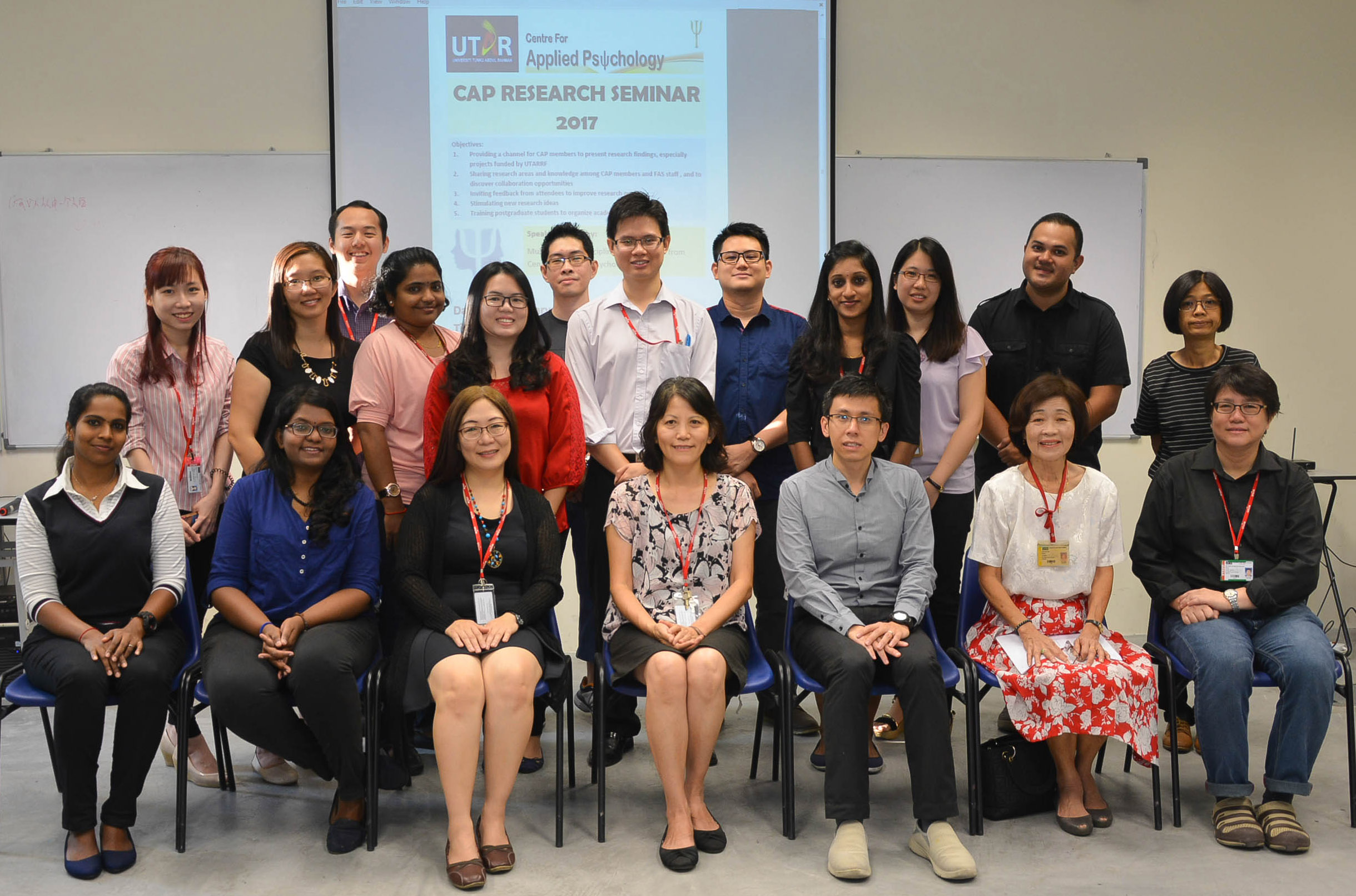 The
presenters and participants all smiles before the start of the seminar
The
presenters and participants all smiles before the start of the seminar
Fellow researchers from the Faculty of Arts and Social Science (FAS) had an insightful day at the Centre for Applied Psychology (CAP) Seminar 2017, organised by its namesake centre on 12 January 2017 at the Kampar Campus.
Members of CAP who were invited to present their researches were FAS Deputy Dean for R&D and Postgraduate Programmes Dr Kok Jin Kuan, Chairperson of CAP Dr Tan Chee Seng, Head of Master of Psychology Programme and Organising Chairperson Dr Yap Chin Choo, and FAS Lecturers Deepa a/p Visvanathan, Mohd Yusof bin Zulkefli, Lee Ling Khai, Sarvarubini a/p Nainee, William Hoi Wei Yuan, Assoc Prof Dr Siah Poh Chua, Loh Wan Lin, Anna Ong Wen Huey and Pheh Kai Shuen.
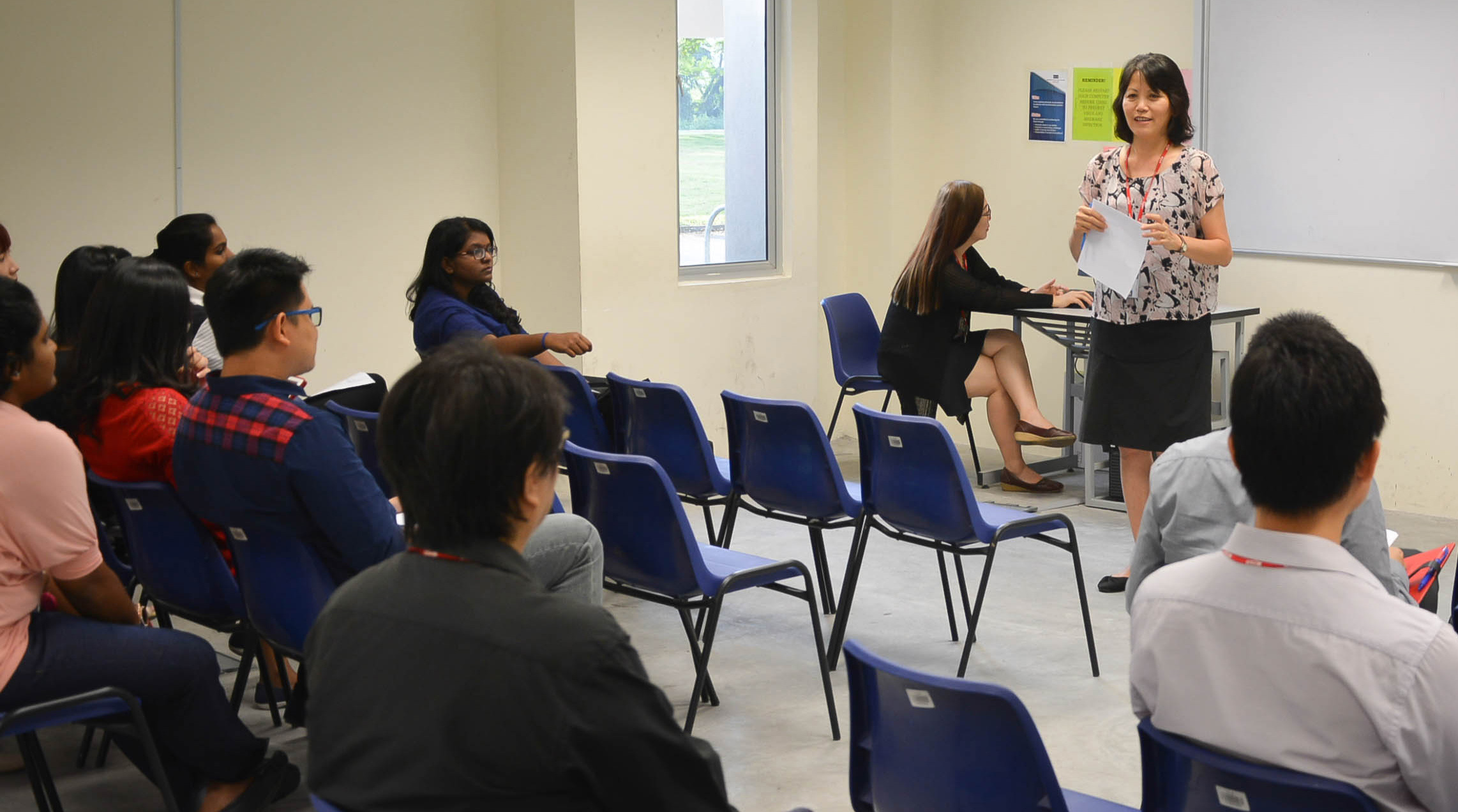 Dr
Kok delivering her opening address
Dr
Kok delivering her opening address
Kick-starting the seminar was Dr Kok, who in her opening address expressed her hopes for this seminar to yield fruitful discussions between the participants and the speakers. True to form, participants actively participated in the Q&A session after each presentation, which not only raised new ideas but also enabled the presenters to obtain positive feedback and offered opportunities for researchers to discuss potential collaborations with each other.
Year Two Master of Psychology (Industrial & Organisational Psychology) student Lew Wei Him was one of the fortunate participants who benefitted from the seminar. “Being a postgraduate student, the seminar provided me with much needed knowledge for my research and enabled me to meet other researchers from different disciplines to grow my network. I also received insights into the academic world and discovered the requirements needed to get research published. With all the new input I received, I hope to be able to work with other researchers in different areas in the future,” said Lew.
FAS Lecturers Ho Khee Hoong and Cheng Siew May also agreed on the seminar being a productive platform that had sparked new ideas for their future researches and mentioned that the information shared by the presenters prioritised impactful social issues for the Malaysian community. Ho also hoped for the important data collected to be of use to the relevant policymakers and to eventually bring positive consequences for society.
The highlight of the seminar was Deepa presenting first, on her research, titled “An Agrammatic Patient’s Comprehension of Active and Passive Sentences using Sentence to Picture Matching Test (SPMT)”, which explained Broca’s aphasia or agrammatic aphasiaas a type of impairment that affects a patient’s speech, language, production and comprehension. Patients also have difficulty understanding complex sentences, and speak in a slow non-fluent manner with inaccurate grammar. Hence, her research focused on investigating an agrammatic patient’s comprehension ability using Christensen’s (2001) SPMT and determining the adequacy of Grodzinsky’s (1990) Trace Deletion Hypothesis (TDH) in explaining the patient’s comprehension of semantic reversible sentences using active and passive sentences as stimuli.
With the SMPT, she was able to test how well the patients identify the sentences to the images and it was found that these patients have good comprehension of active sentences, yet have poor comprehension of passive sentences. Hence, she suggested speech therapists use text and illustrations to design individual assessments and treatment programmes for agrammatic patients.
Touching on the common note of Malaysian’s wellbeing, Mohd Yusof used his “Beauty and the Beast: Jom Kurus 1Malaysia (JK1M) Programme vs Social Media” research to raise the issues of the effectiveness of JK1M’s advertisements, unstructured online campaign strategies and misconception of weight management, which was supposed to introduce healthy lifestyle practices among Malaysians.
Together with his research partner FAS Lecturer Mohd Fauzi bin Harun, they analysed JK1M’s marketing message towards the public, and examined the impact of JK1M’s Instagram advertisements. Much to their dismay, the results from the research indeed proved that JK1M lacked emotional touch in their marketing strategies, had limited postings in its Instagram account, and that the body copies used were too vague. He suggested for the campaign to use proper online strategies to better reflect the message, to suggest natural outdoor locations for exercising, to use hashtags correctly and to make the campaign more interesting to attract larger audiences.
On the topic of education, Lee’s research titled “International Tertiary Education Hub Myth: Semiotics and Online Construction of Institutional Identity” explored how multimodal semiotic resources are used in the construction of the online institutional identity of private higher education institutions on their official homepages, determined the functions of semiotic resources used in the institutional identity construction, and determined how myth played a role in constructing the institutional identity of the higher education institution.
Using SEGi’s official homepage to understand the marketing strategies employed to attract students to enrol, their findings proved that the use of images such as flag posts giving the sense of an international community and students actively participating in outdoor activities portraying the ideal university life; and the listing of the university’s awards and achievements to affirm students’ choice of SEGi, effectively reflected SEGi’s institutional identity.
Meanwhile, Dr Tan’s research concerning the “Attitude towards Deafness and Deaf People among Malaysian Secondary School Students” was conducted to understand the factors that influence students’ attitudes towards deafness. This is because some students who lack the awareness and knowledge on deafness may develop certain negative attitudes towards deaf people, resulting in some deaf students being neglected, discriminated or even bullied in conventional schools.
However, some studies have shown that sensitive and effective communication with respect can contribute to positive interactions between regular and deaf students. Coinciding with that finding, Dr Tan’s research further proved that the more exposure a person has towards deafness, the higher the likelihood of them accepting these deaf students. In fact, the willingness to be close to deaf people of regular students increases positive attitudes towards their deaf peers. The findings from the research will influence the possible integration of deaf and regular students into the same classroom environment.
Autistic students form the subjects in Hoi’s research, titled “A Comparison Study on the Coping Strategies and Psychological Health of Secondary School Students with Different Levels of Autism Spectrum Quotient”. It aimed to find suspected autistic cases and to examine any significant difference in their coping strategies, stress anxiety and depression among secondary school students on different points along the autistic spectrum.
Results showed that high level autistic students utilise problem-focused coping strategies more, and have higher levels of stress, anxiety and depression. Understanding these findings will prove useful for parents and guardians to better understand autism, which will enable them to seek the appropriate treatments for these autistic individuals and to teach them life adaptation skills.
Sarvarubini continued the session with “The Role of Meaning in Life and Marital Satisfaction in Life Satisfaction of Malaysian Adults”, which focused on uncovering the relationship between the meaning in life and life satisfaction with marital satisfaction as the mediator. The research confirmed that there is a significant positive relationship between the presence of meaning in life, marital satisfaction and life satisfaction, but there were no significant relationship between the search for meaning and life satisfaction. There is a positive correlation between marital satisfaction and life satisfaction as well. With these findings, she hopes to be able to benefit psychologists, counsellors and social workers on understanding some of the key factors in life satisfaction.
Another interesting research presented by Dr Kok and FAS Senior Lecturer Low Sew Kim was “Coping Abilities and Social Support of Myanmar Teenage Refugees in Malaysia”. They gave a glimpse of the difficult lives of the refugees living in psychological distress, fear and exile. Some have resorted to quitting school to work for wages of RM 30 a day to support their families.
The unfortunate situation prompted them to find out the coping abilities and social support used by the teenage refugees in adapting to environmental challenges in Malaysia. Three types of coping strategies were found, which were problem-focused, social support and non-productive coping. Teenage refugees who use the problem-focused coping strategy may “sing, dance or draw” when facing difficulties. Some were also found to rely on their religion or traditional cultural beliefs to cope with the hardships. Those using the social support coping strategy do so by sharing their problems with their parents or teacher for guidance and encouragement, while those using the non-productive coping strategy may “cry, sleep, watch television or be idle” to escape from their ordeals.
In a concise presentation, Dr Siah’s “Cultural Values and Attitudes towards Older Person among Malaysian Chinese Adolescents” highlighted to participants on how information from his research could be beneficial to nurturing young people’s positive attitude towards the elderly, and to instil among the young traditional values that will shape their positive attitudes.
Loh, on the other hand, shared on “Job Design and Work Engagement among Malaysian Gen Y: A Preliminary Study” which illustrated the positive work engagement found in the younger generation of today. They are said to enjoy challenging work, less likely to resign and portray positive feelings towards the effort they put in for their work, if the job is fulfilling and significant.
Ong’s research on “Confirmatory Factor Analysis of the Sibling Inventory of Differential Experience” explained about the parental differential treatment, where each child in the family is treated differently according to their sex and birth order. Hence, using Taiwanese children as her target sample, she analysed the degree of differential from the children’s perspectives, based on how mothers treat their children.
Diabetes was the subject of Dr Yap’s studies in her “Personal Attribution Emotion Regulation, Interpersonal Relationship and Health Literacy as Determinants of Diabetes Self-management and Its Impact on Quality of Life” research, which expounded diabetes as one of the costliest diseases afflicting Malaysians, a problem that is growing as the patients of which are becoming younger. Participants were informed that personal attribution and emotion management components are dominant influences of self-management. It also meant that when patients practised a healthy lifestyle and succeed in blood glucose normalisation, the patients become free from diabetes-inflicted complication anxiety and have more energy to engage in desired activities.
Pheh ended the seminar with the research titled “Improving Sexual and Reproductive Health Knowledge of Young Malaysians: A Randomised Controlled Trial”, which aimed to investigate the effects of a peer-led sexual and reproductive health (SRH) education programme on young Malaysians. Positively, the result shows greater improvement in SRH knowledge in the group which underwent that programme. The programme hence was deemed as an effective intervention programme for improving the sexual health of young Malaysians.
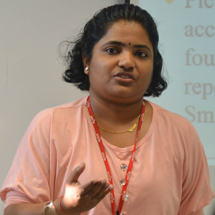 |
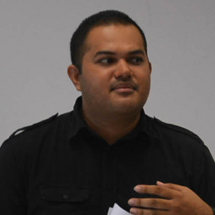 |
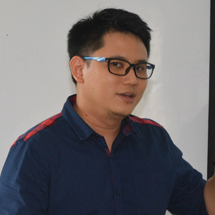 |
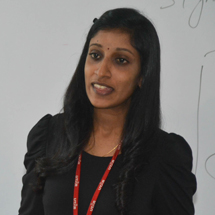 |
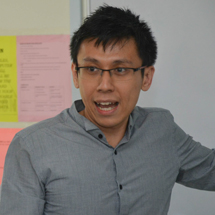 |
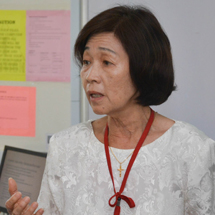 |
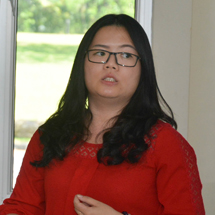 |
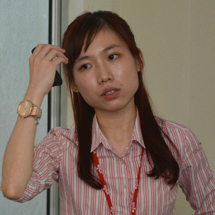 |
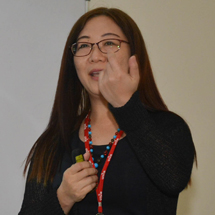 |
| The presenters (top row) Deepa, Mohd Yusof, Lee, (middle row) Sarvarubini, Dr Tan, Low, (bottom row) Loh, Ong and Dr Yap explaining their researches | ||
© 2019 UNIVERSITI TUNKU ABDUL RAHMAN DU012(A).
Wholly owned by UTAR Education Foundation Co. No. 578227-M LEGAL STATEMENT TERM OF USAGE PRIVACY NOTICE